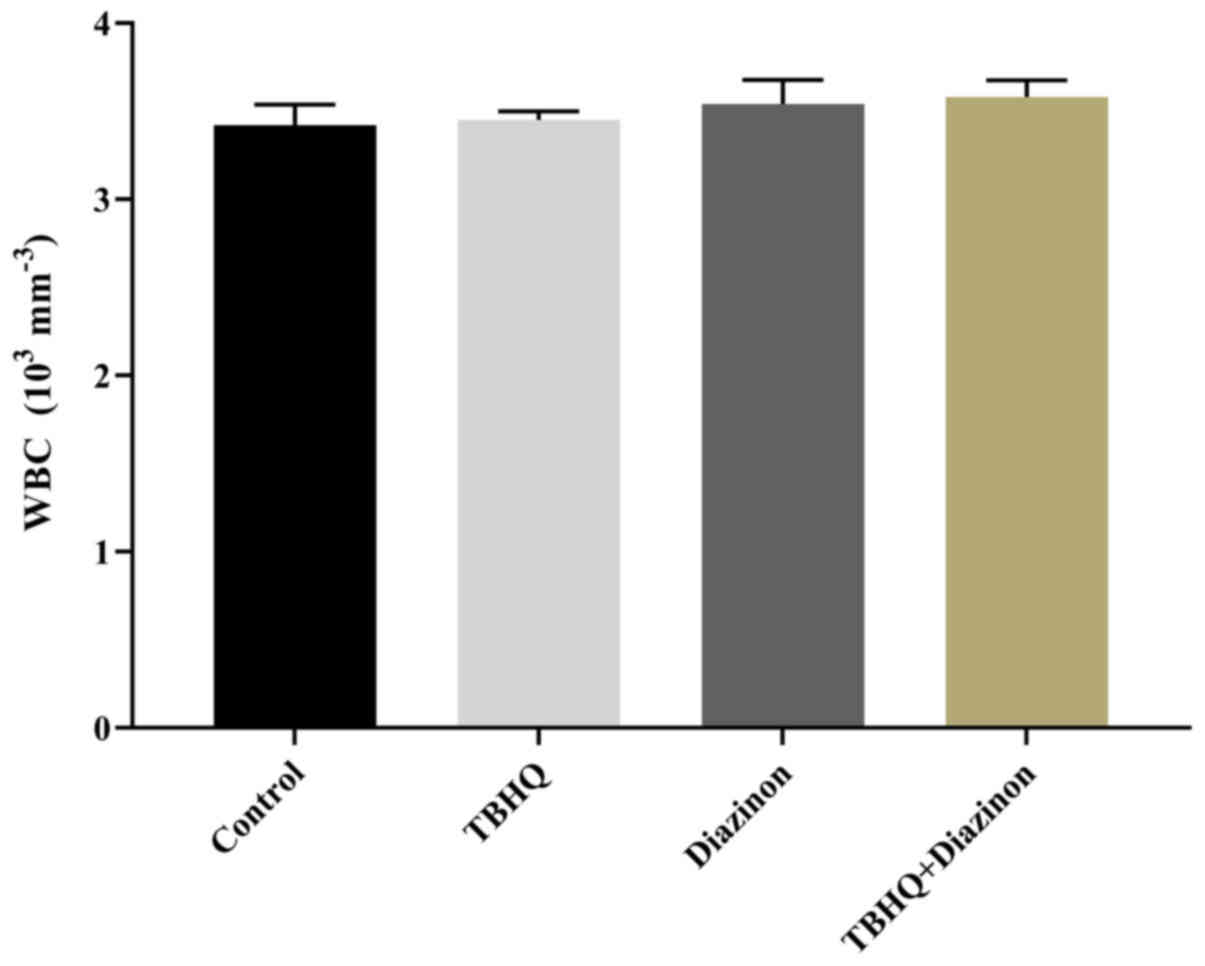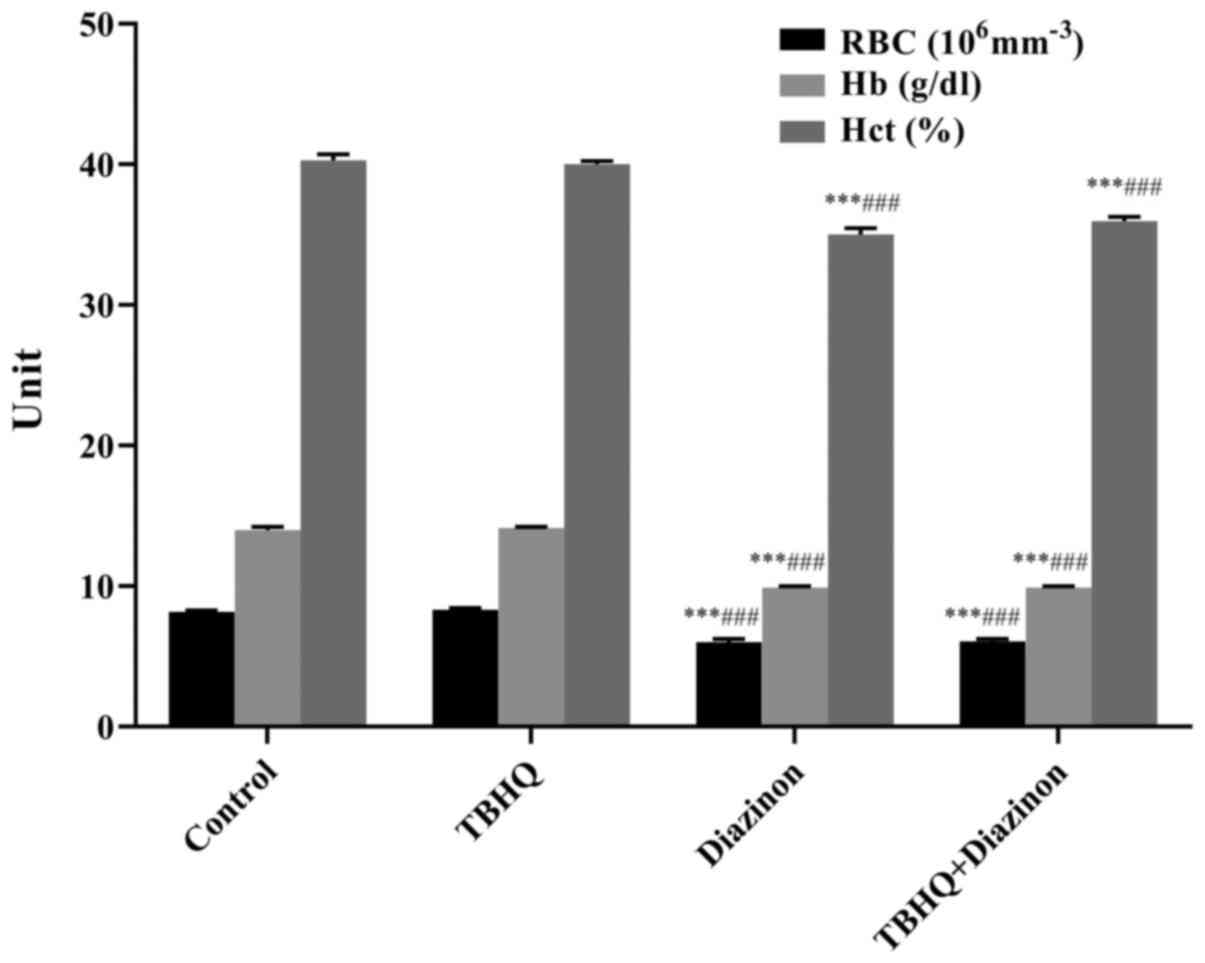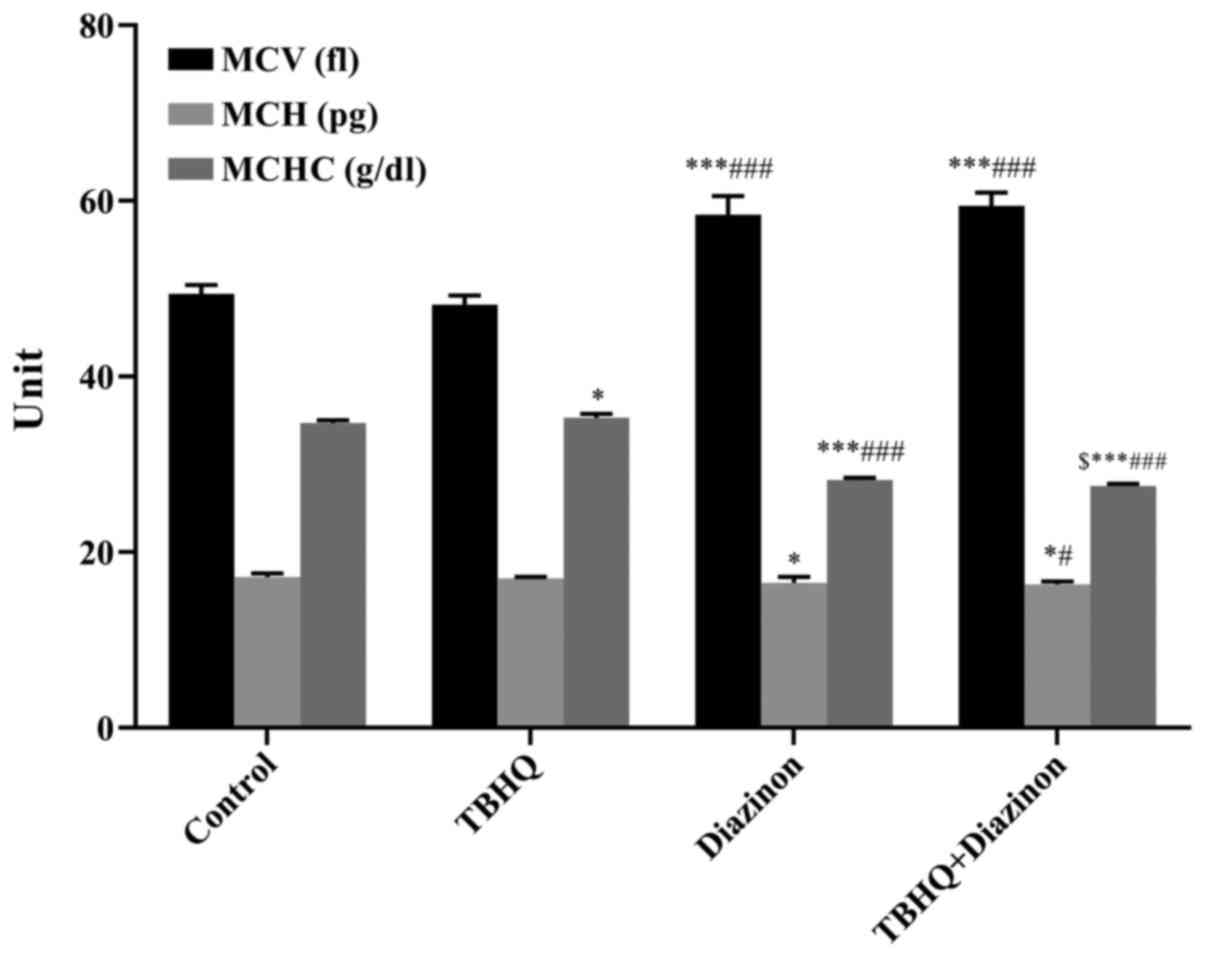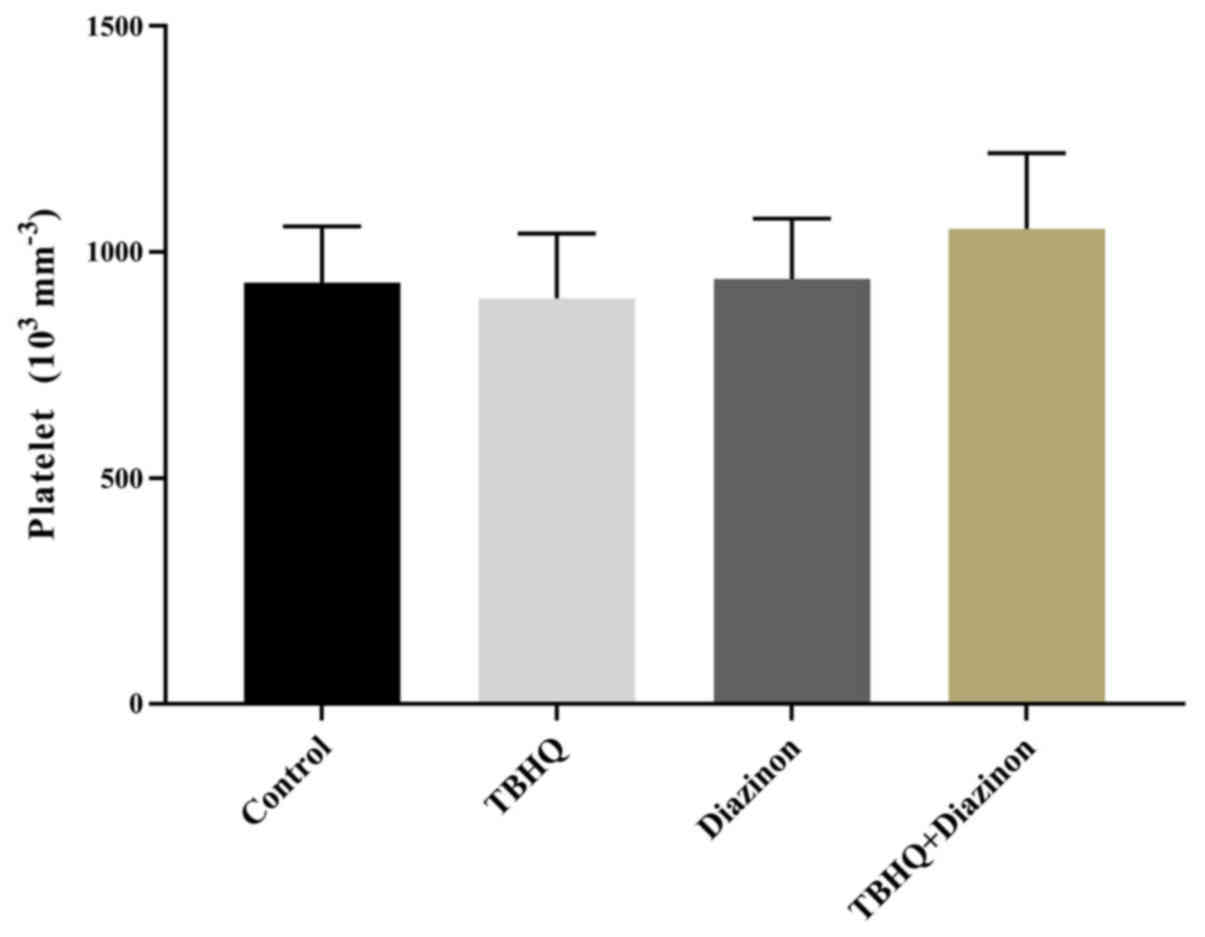|
1
|
Sharma P, Jha AB, Dubey RS and Pessarakli
M: Reactive oxygen species, oxidative damage, and antioxidative
defense mechanism in plants under stressful conditions. J Botany.
2012:2170372012. View Article : Google Scholar
|
|
2
|
Machlin LJ and Bendich A: Free radical
tissue damage: Protective role of antioxidant nutrients. FASEB J.
1:441–445. 1987. View Article : Google Scholar : PubMed/NCBI
|
|
3
|
Ayala A, Muñoz MF and Argüelles S: Lipid
peroxidation: production, metabolism, and signaling mechanisms of
malondialdehyde and 4-hydroxy-2-nonenal. Oxid Med Cell Longev.
2014:3604382014. View Article : Google Scholar : PubMed/NCBI
|
|
4
|
Beckman KB and Ames BN: Oxidative decay of
DNA. J Biol Chem. 272:19633–19636. 1997. View Article : Google Scholar : PubMed/NCBI
|
|
5
|
Bokelmann I and Mahlknecht U: Valproic
acid sensitizes chronic lymphocytic leukemia cells to apoptosis and
restores the balance between pro- and antiapoptotic proteins. Mol
Med. 14:20–27. 2008. View Article : Google Scholar : PubMed/NCBI
|
|
6
|
Higashi Y, Noma K, Yoshizumi M and Kihara
Y: Endothelial function and oxidative stress in cardiovascular
diseases. Circ J. 73:411–418. 2009. View Article : Google Scholar : PubMed/NCBI
|
|
7
|
Stadler K: Oxidative stress in
diabetesDiabetes: An Old Disease, a New Insight. Ahmad S:
Springer-Verlag; New York, NY: pp. 272–287. 2013
|
|
8
|
Apel K and Hirt H: Reactive oxygen
species: Metabolism, oxidative stress, and signal transduction.
Annu Rev Plant Biol. 55:373–399. 2004. View Article : Google Scholar : PubMed/NCBI
|
|
9
|
El-Shenawy NS, El-Salmy F, Al-Eisa RA and
El-Ahmary B: Amelioratory effect of vitamin E on organophosphorus
insecticide diazinon-induced oxidative stress in mice liver. Pestic
Biochem Physiol. 96:101–107. 2010. View Article : Google Scholar
|
|
10
|
Shah MD and Iqbal M: Diazinon-induced
oxidative stress and renal dysfunction in rats. Food Chem Toxicol.
48:3345–3353. 2010. View Article : Google Scholar : PubMed/NCBI
|
|
11
|
Eddleston M, Street JM, Self I, Thompson
A, King T, Williams N, Naredo G, Dissanayake K, Yu LM, Worek F, et
al: A role for solvents in the toxicity of agricultural
organophosphorus pesticides. Toxicology. 294:94–103. 2012.
View Article : Google Scholar : PubMed/NCBI
|
|
12
|
Soltaninejad K and Shadnia S: History of
the use and epidemiology of organophosphorus poisoningBasic and
Clinical Toxicology of Organophosphorus Compounds. Springer; New
York, NY: pp. 25–43. 2014, View Article : Google Scholar
|
|
13
|
Casas E, Bonilla E, Ducolomb Y and
Betancourt M: Differential effects of herbicides atrazine and
fenoxaprop-ethyl, and insecticides diazinon and malathion, on
viability and maturation of porcine oocytes in vitro. Toxicol In
Vitro. 24:224–230. 2010. View Article : Google Scholar : PubMed/NCBI
|
|
14
|
Rodrigo L, Hernández AF, López-Caballero
JJ, Gil F and Pla A: Immunohistochemical evidence for the
expression and induction of paraoxonase in rat liver, kidney, lung
and brain tissue. Implications for its physiological role. Chem
Biol Interact. 137:123–137. 2001. View Article : Google Scholar : PubMed/NCBI
|
|
15
|
Sargazi Z, Nikravesh MR, Jalali M,
Sadeghnia H, Anbarkeh FR and Mohammadzadeh L: Gender-related
differences in sensitivity to diazinon in gonads of adult rats and
the protective effect of vitamin E. Int J Womens Health Reprod Sci.
3:40–47. 2015. View Article : Google Scholar
|
|
16
|
Aluigi MG, Angelini C, Falugi C, Fossa R,
Genever P, Gallus L, Layer PG, Prestipino G, Rakonczay Z, Sgro M,
et al: Interaction between organophosphate compounds and
cholinergic functions during development. Chem Biol Interact.
157–158:305–316. 2005. View Article : Google Scholar
|
|
17
|
Buyukokuroglu ME, Cemek M, Yurumez Y,
Yavuz Y and Aslan A: Antioxidative role of melatonin in
organophosphate toxicity in rats. Cell Biol Toxicol. 24:151–158.
2008. View Article : Google Scholar : PubMed/NCBI
|
|
18
|
Lu XT, Ma Y, Wang C, Zhang XF, Jin DQ and
Huang CJ: Cytotoxicity and DNA damage of five organophosphorus
pesticides mediated by oxidative stress in PC12 cells and
protection by vitamin E. J Environ Sci Health B. 47:445–454. 2012.
View Article : Google Scholar : PubMed/NCBI
|
|
19
|
Colović MB, Krstić DZ, Lazarević-Pašti TD,
Bondžić AM and Vasić VM: Acetylcholinesterase inhibitors:
Pharmacology and toxicology. Curr Neuropharmacol. 11:315–335. 2013.
View Article : Google Scholar : PubMed/NCBI
|
|
20
|
Aygun D, Erenler AK, Karatas AD and Baydin
A: Intermediate syndrome following acute organophosphate poisoning:
Correlation with initial serum levels of muscle enzymes. Basic Clin
Pharmacol Toxicol. 100:201–204. 2007. View Article : Google Scholar : PubMed/NCBI
|
|
21
|
Kalender S, Uzun FG, Durak D, Demir F and
Kalender Y: Malathion-induced hepatotoxicity in rats: The effects
of vitamins C and E. Food Chem Toxicol. 48:633–638. 2010.
View Article : Google Scholar : PubMed/NCBI
|
|
22
|
Kalender Y, Uzunhisarcikli M, Ogutcu A,
Acikgoz F and Kalender S: Effects of diazinon on
pseudocholinesterase activity and haematological indices in rats:
The protective role of vitamin E. Environ Toxicol Pharmacol.
22:46–51. 2006. View Article : Google Scholar : PubMed/NCBI
|
|
23
|
Banaee M, Sureda A, Mirvaghefi A and
Ahmadi K: Effects of diazinon on biochemical parameters of blood in
rainbow trout (Oncorhynchus mykiss). Pestic Biochem Physiol.
99:1–6. 2011. View Article : Google Scholar
|
|
24
|
Kalender S, Ogutcu A, Uzunhisarcikli M,
Açikgoz F, Durak D, Ulusoy Y and Kalender Y: Diazinon-induced
hepatotoxicity and protective effect of vitamin E on some
biochemical indices and ultrastructural changes. Toxicology.
211:197–206. 2005. View Article : Google Scholar : PubMed/NCBI
|
|
25
|
Rush T, Liu XQ, Hjelmhaug J and Lobner D:
Mechanisms of chlorpyrifos and diazinon induced neurotoxicity in
cortical culture. Neuroscience. 166:899–906. 2010. View Article : Google Scholar : PubMed/NCBI
|
|
26
|
Sargazi Z, Nikravesh MR, Jalali M,
Sadeghnia HR, Anbarkeh Rahimi F and Mohammadzadeh L:
Diazinon-induced ovarian toxicity and protection by vitamins E.
Iranian J Toxicol. 8:1130–1135. 2014.
|
|
27
|
Oruç EÖ and Usta D: Evaluation of
oxidative stress responses and neurotoxicity potential of diazinon
in different tissues of Cyprinus carpio. Environ Toxicol
Pharmacol. 23:48–55. 2007. View Article : Google Scholar : PubMed/NCBI
|
|
28
|
Gokalp O, Buyukvanlı B, Cicek E, Ozer MK,
Koyu A, Altuntas I and Koylu H: The effects of diazinon on
pancreatic damage and ameliorating role of vitamin E and vitamin C.
Pestic Biochem Physiol. 81:123–128. 2005. View Article : Google Scholar
|
|
29
|
Ogutcu A, Uzunhisarcikli M, Kalender S,
Durak D, Bayrakdar F and Kalender Y: The effects of organophosphate
insecticide diazinon on malondialdehyde levels and myocardial cells
in rat heart tissue and protective role of vitamin E. Pestic
Biochem Physiol. 86:93–98. 2006. View Article : Google Scholar
|
|
30
|
Meyer AS and Isaksen A: Application of
enzymes as food antioxidants. Trends Food Sci Technol. 6:300–304.
1995. View Article : Google Scholar
|
|
31
|
Sargazi S, Moghadam-Jafari A and
Heidarpour M: Protective effect of tert butyl hydroquinone on
diazinon-induced oxidative stress in brain and heart of male rats.
Zahedan J Res Med Sci. 18:1–5. 2016.
|
|
32
|
Tasset I, Pérez-De La Cruz V,
Elinos-Calderón D, Carrillo-Mora P, González-Herrera IG, Luna-López
A, Konigsberg M, Pedraza-Chaverrí J, Maldonado PD, Ali SF, et al:
Protective effect of tert-butylhydroquinone on the
quinolinic-acid-induced toxicity in rat striatal slices: Role of
the Nrf2-antioxidant response element pathway. Neurosignals.
18:24–31. 2010. View Article : Google Scholar : PubMed/NCBI
|
|
33
|
Nishizono S, Hayami T, Ikeda I and
Imaizumi K: Protection against the diabetogenic effect of feeding
tert-butylhydroquinone to rats prior to the administration of
streptozotocin. Biosci Biotechnol Biochem. 64:1153–1158. 2000.
View Article : Google Scholar : PubMed/NCBI
|
|
34
|
Sanders HO and Cope OB: Toxicities of
several pesticides to two species of cladocerans. Trans Am Fish
Soc. 95:165–169. 1966. View Article : Google Scholar
|
|
35
|
Nasrabadi T, Bidhendi GN, Karbassi A,
Grathwohl P and Mehrdadi N: Impact of major organophosphate
pesticides used in agriculture to surface water and sediment
quality (Southern Caspian Sea basin, Haraz River)Environmental
Earth Sciences. 63. Springer; New York, NY: pp. 873–883. 2011,
View Article : Google Scholar
|
|
36
|
Garfitt SJ, Jones K, Mason HJ and Cocker
J: Exposure to the organophosphate diazinon: Data from a human
volunteer study with oral and dermal doses. Toxicol Lett.
134:105–113. 2002. View Article : Google Scholar : PubMed/NCBI
|
|
37
|
Castillo LE, Ruepert C and Solis E:
Pesticide residues in the aquatic environment of banana plantation
areas in the north Atlantic zone of Costa Rica. Environ Toxicol
Chem. 19:1942–1950. 2000. View Article : Google Scholar
|
|
38
|
Galloway T and Handy R: Immunotoxicity of
organophosphorous pesticides. Ecotoxicology. 12:345–363. 2003.
View Article : Google Scholar : PubMed/NCBI
|
|
39
|
Kahl R and Kappus H: Toxicology of the
synthetic antioxidants BHA and BHT in comparison with the natural
antioxidant vitamin E. Z Lebensm Unters Forsch. 196:329–338.
1993.(In German). View Article : Google Scholar : PubMed/NCBI
|
|
40
|
Hawkey CM, Bennett PM, Gascoyne SC, Hart
MG and Kirkwood JK: Erythrocyte size, number and haemoglobin
content in vertebrates. Br J Haematol. 77:392–397. 1991. View Article : Google Scholar : PubMed/NCBI
|
|
41
|
Svoboda M, Luskova V, Drastichova J and
Žlabek V: The effect of diazinon on haematological indices of
common carp (Cyprinus carpio L.). Acta Vet Brno. 70:457–465.
2001. View Article : Google Scholar
|
|
42
|
Far MS, Roodsari HV, Zamini A, Mirrasooli
E and Kazemi R: The effects of diazinon on behavior and some
hematological parameters of fry rainbow trout (Oncorhynchus
mykiss). World J Fish Mar Sci. 4:369–375. 2012.
|
|
43
|
Ahmad Z: Acute toxicity and haematological
changes in common carp (Cyprinus carpio) caused by diazinon
exposure. Afr J Biotechnol. 10:13852–13859. 2011. View Article : Google Scholar
|
|
44
|
Yassa VF, Girgis SM and Abumourad IM:
Potential protective effects of vitamin E on diazinon-induced DNA
damage and some haematological and biochemical alterations in rats.
J Mediterr Ecol. 11:31–39. 2011.
|
|
45
|
Banaee M, Mirvaghefi AR, Mojazi AB, Rafiee
GR and Nematdost B: Hematological and histopathological effects of
diazinon poisoning in common carp (Cyprinus carpio). Iranian
J Nat Resources. 64:1–12. 2011.
|
|
46
|
Köprücü SŞ, Köprücü K, Ural MŞ, İspir Ü
and Pala M: Acute toxicity of organophosphorous pesticide diazinon
and its effects on behavior and some hematological parameters of
fingerling European catfish (Silurus glanis L.). Pestic
Biochem Physiol. 86:99–105. 2006. View Article : Google Scholar
|
|
47
|
Messarah M, Amamra W, Boumendjel A, Barkat
L, Bouasla I, Abdennour C, Boulakoud MS and Feki AE: Ameliorating
effects of curcumin and vitamin E on diazinon-induced oxidative
damage in rat liver and erythrocytes. Toxicol Ind Health. 29:77–88.
2013. View Article : Google Scholar : PubMed/NCBI
|
|
48
|
Nwani CD, Okeke OC, Onyishi G, Atama C,
Chinekwu U and Eneje LO: Toxicity and effects of diazinon on
behaviour and some haematological parameters of African catfish
Clarias gariepinus. Zool Ecol. 22:246–253. 2012. View Article : Google Scholar
|
|
49
|
Rauf A and Arain N: Acute toxicity of
diazinon and its effects on hematological parameters in the Indian
carp, Cirrhinus mrigala (Hamilton). Turk J Vet Anim Sci.
37:535–540. 2013. View Article : Google Scholar
|


















